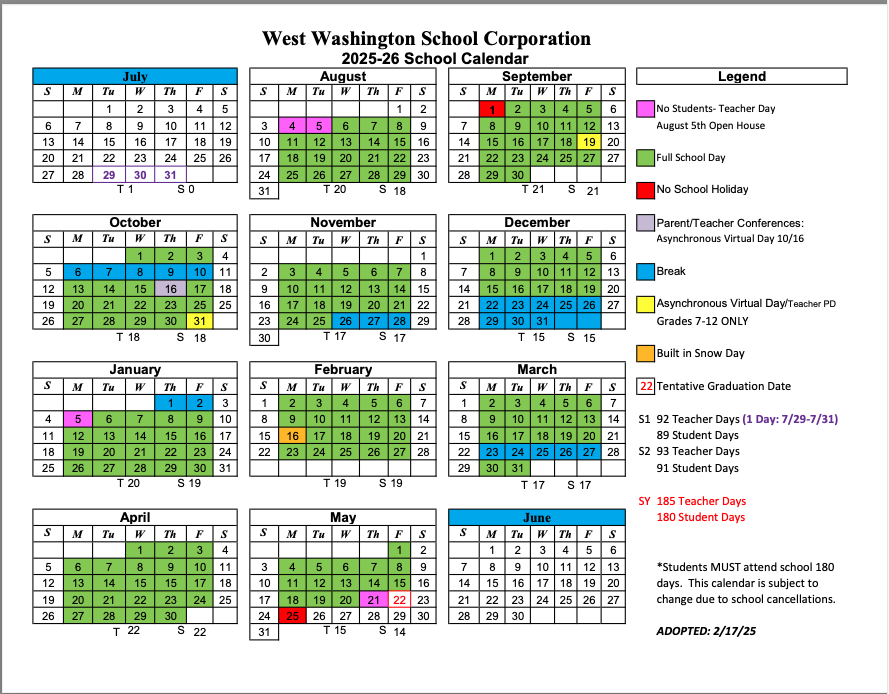
By Morgan Humphrey, SHS Student Writer
There is a new face roaming the halls at Salem Schools this semester. Gary Pennington was hired to be a Safety Resource Officer at the schools starting in January.
With more than 30 years of experience in law enforcement, and a Salem High School graduate, the school staff is excited to have him join the team. Pennington will be at all three schools.
“We are a teacher, mentor, and at the very bottom, law enforcement,” said Pennington, explaining that SRO’s don’t get involved in disciplinary issues unless there is a criminal violation. They are there to help students if they are having issues at home or school.
“As an SRO, we want to show students we are just like you, and we aren’t any different,” he said.
Pennington brings a lot of experience to his role as an SRO. He is a retired conservation officer, then he was the town marshall of Borden, and he also did security at the Washington County Sheriff's Department.
When asked why he wanted to become an SRO, Pennington said, “It is a different way to do law enforcement. I was ready for a change and I would rather talk to students, to steer them in the right direction.”
Pennington has exceptional qualifications for the job of an SRO, with his experience in that role at Borden and East Washington schools.
“I have had a lot of experience dealing with the public and young adults,” he said.
Pennington joins SRO Ronnie Mays to have more of a presence in all three buildings on Salem’s school campus.

David Day, instructor for the Indiana Hunters Ed Association, will be conducting a Hunter's Education Class. This class is recommended for anyone age 9 or older. Anyone 12 and under must have a parent or gaurdian attend with them.
Classes will be held on Saturday, February 22nd and March 1st, from 1-6 p.m. Participants must attend all classes for completion. They will be held in the Washington County Government building located at 806 Martinsburg Road, Salem, Indiana. This will be our group's only class before spring hunting.
All participants need to make reservations online for classroom at http://www.register-ed.com/for the class by February 21st, 1:00 p.m. There is no charge for the class. If you cannot sign up online please call Sara Day at 812-620-0922 to sign up.

By Nathaniel Smith, Editor
The 2025 high school Polar Plunge commenced this morning, Friday, February 14 at 10:30 a.m., and it was a massive success! With a bone-chilling temperature of 26°F, the event sent 132 plungers from several different schools in our area deep into Deam Lake in Borden to raise funds for Special Olympics. In total, the participating schools raised more than $17,000 for the program. With fundraising like that, the Special Olympics will be able to continue thriving.
I spoke with Craig Tornquist who leads all of the school assemblies for Champions Together. Champions Together is the partnership between the Indiana High School Athletic Association (IHSAA) and Special Olympics.
“It’s a partnership, and it’s all about unified sports,” said Tornquist. “Unified sports are taking students with intellectual disabilities and students without intellectual disabilities and putting them together on the same team. So now, students with intellectual disabilities can compete for a high school state championship, and it’s the same as you’d win in traditional championships. It’s identical. It’s truly amazing, and we now have more than 300 high schools in Indiana doing something with Champions Together.”
Tornquist then went on to discuss the overwhelming support shown throughout the student population.
“These are the coolest high school students anywhere. The best thing about Special Olympics is that everyone is in it for the right reason. There is no one out here today for the wrong reason,” said Tornquist. “I am just really impressed by these young people, and they give me hope.”
Craig Tornquist was not the only one brimming with hope. Angela Phipps leads the Lions Unified group at Salem High School. I spoke with her and discussed the joy and compassion that the students bring to the table. Not only at the Polar Plunge, but at every Lions Unified event.
“Salem has been doing the Plunge since 2016, and I’m just really proud of the kids. They go above and beyond every year,” said Phipps.
Salem also happened to take home a trophy this morning. Due to their loud and proud attitude and enthusiasm, they were awarded with the Team Spirit Award!
Enjoy photos from the high school Polar Plunge below!
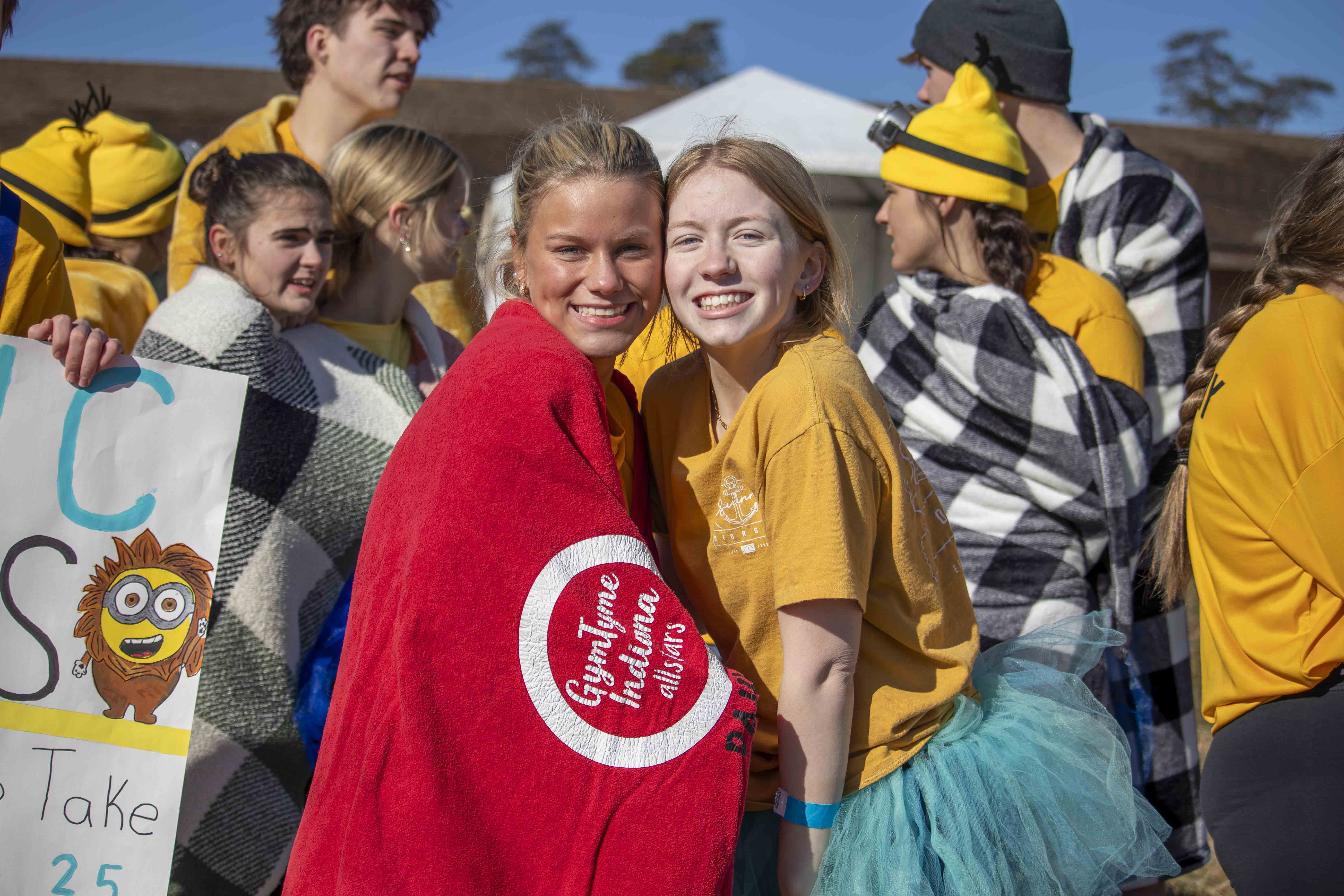
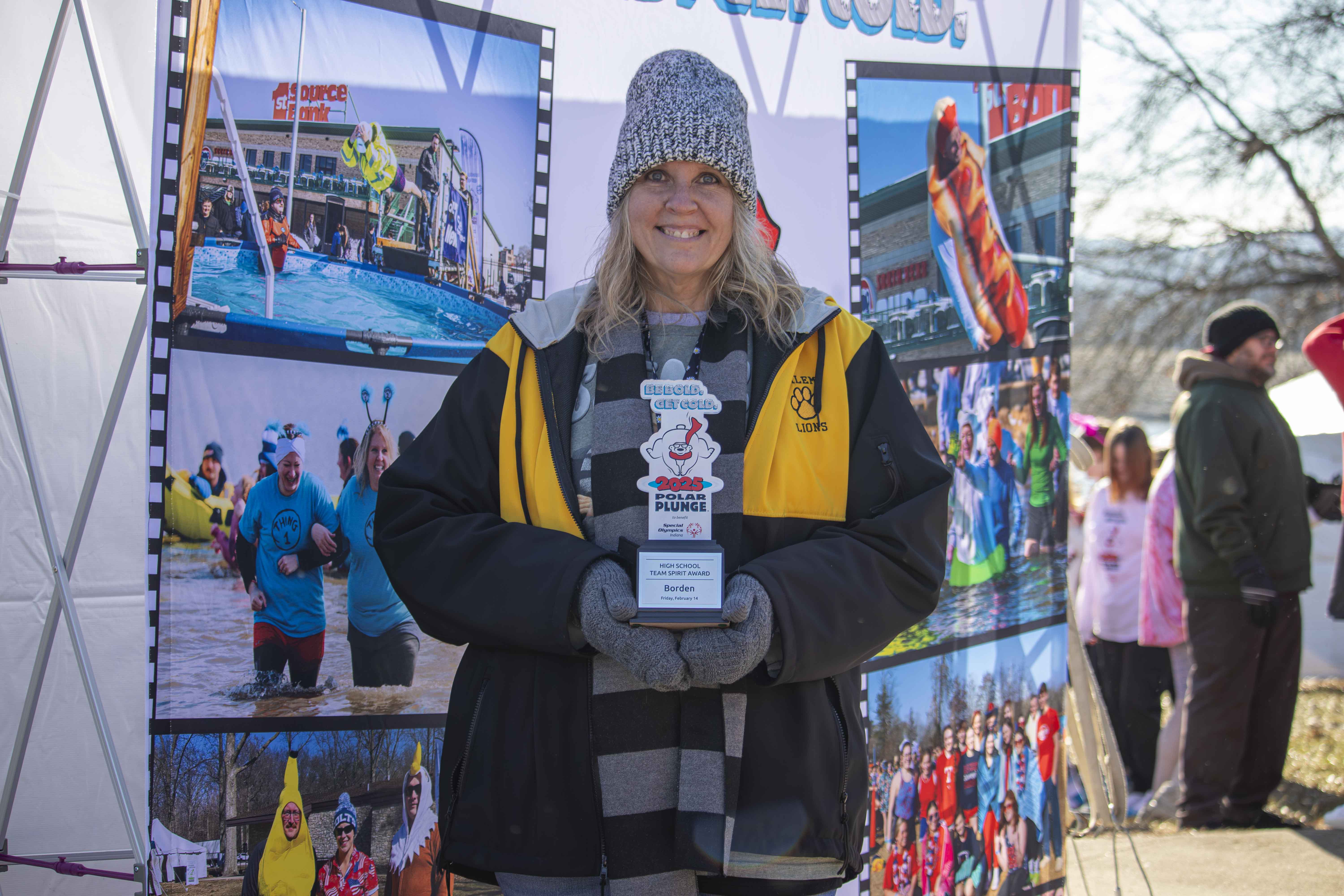 Angela Phipps with Salem's Team Spirit Award.
Angela Phipps with Salem's Team Spirit Award.
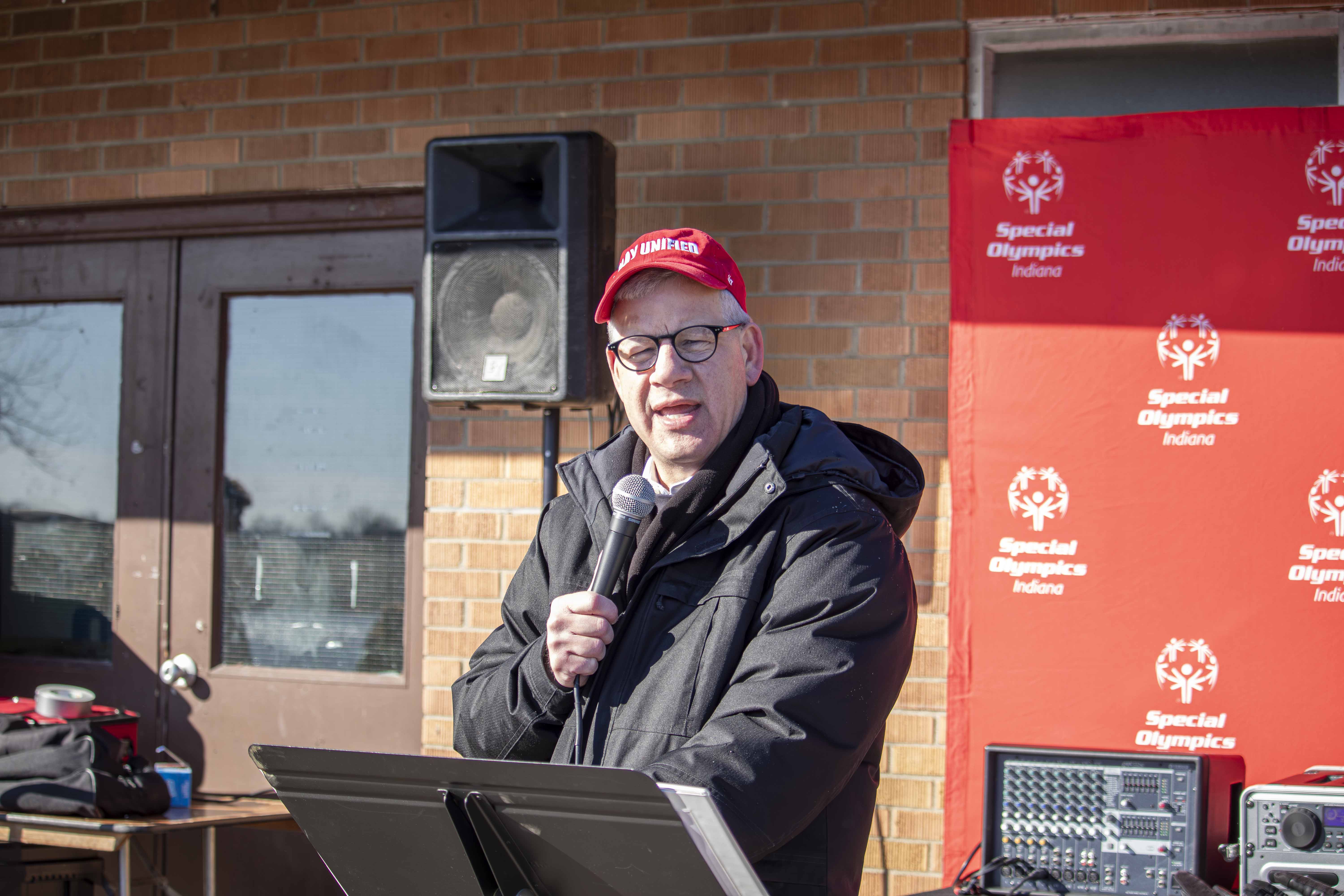 Craig Tornquist.
Craig Tornquist.




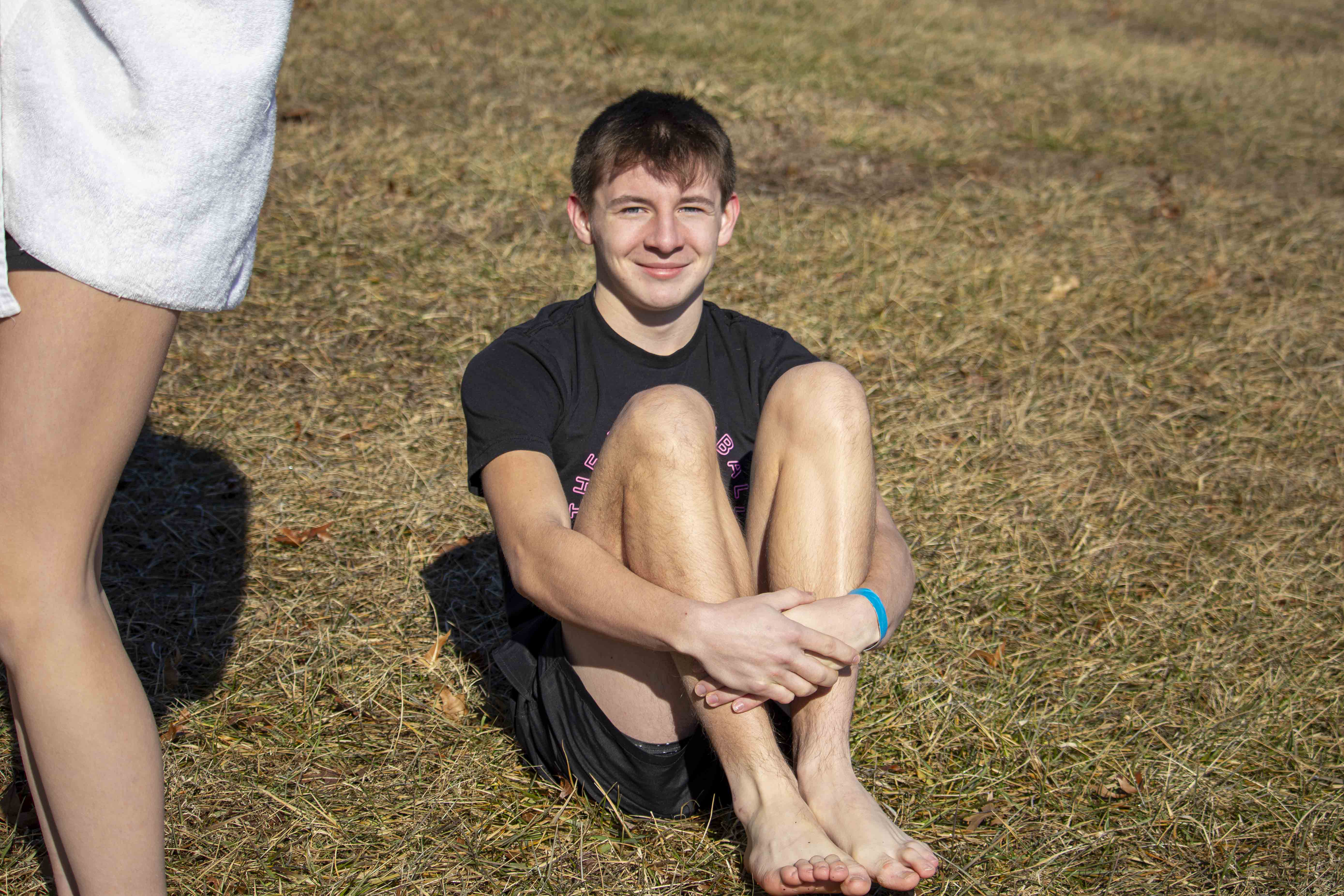

 Emergency Responders ensuring everyone's safety.
Emergency Responders ensuring everyone's safety.
Photos by Nathaniel Smith.
SalemLeader.com
Leader Publishing Company of Salem, Inc.
P.O. Box 506
117-119 East Walnut Street
Salem, Indiana. 47167
Phone: 812-883-3281 | Fax: 812-883-4446
Business Hours:
Mondays through Fridays, 9:00am - 5:00pm
News:
news@salemleader.com
Office:
office@salemleader.com
Publisher:
publisher@salemleader.com
Business
- More Business News
- Go To Guide
- Business Directory
- Auctions
Education
- More Education News
Opinion
- Editorials
- Letters to the Editor
- Columns
- Unsung Heroes
- Days Gone By
- In the Garden
- Guest Columns
- Reader's Poll
- Salem Leader Forum
- Questions and Answers
Church
- Bible Aerobics
- Church News
- Church Directory


